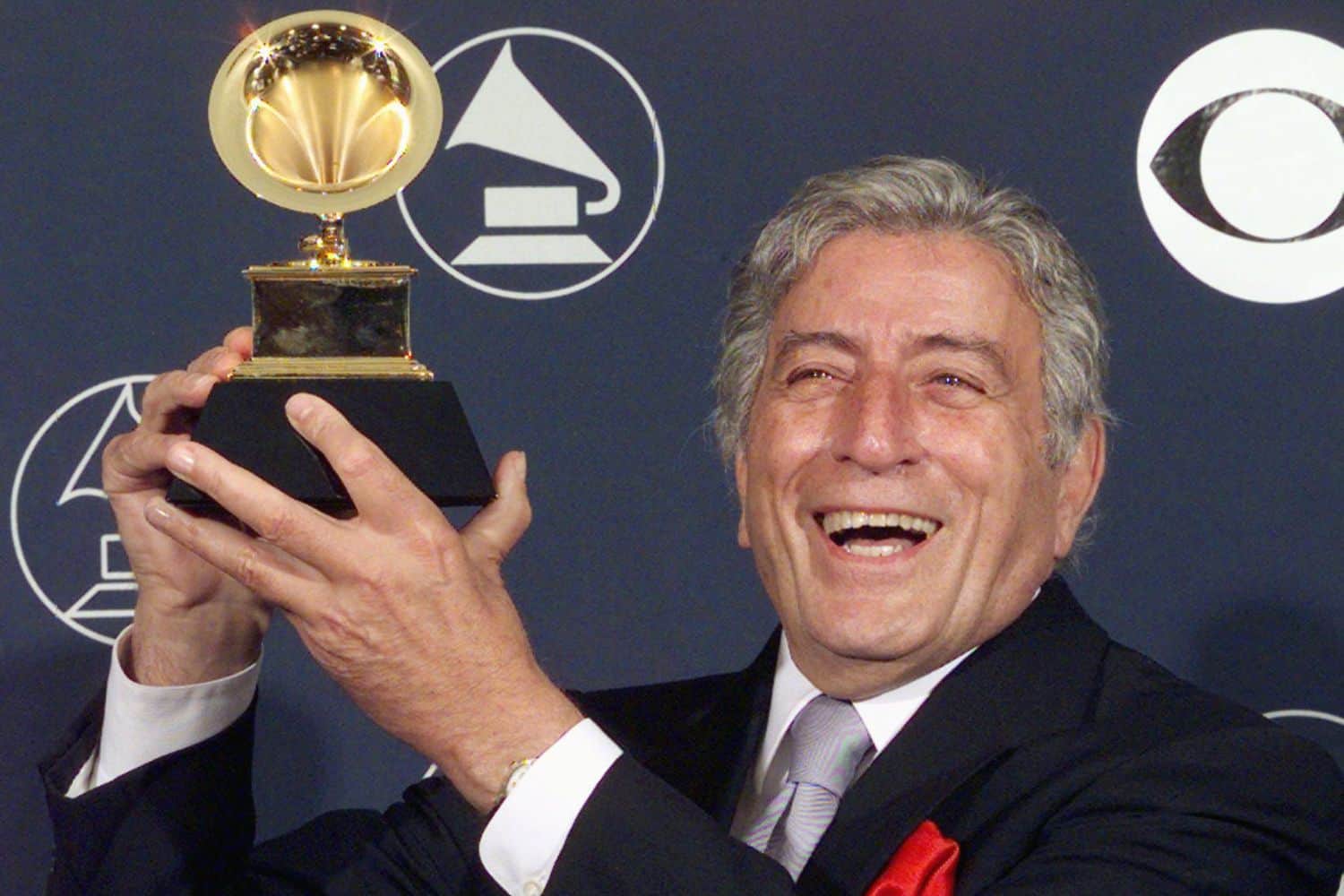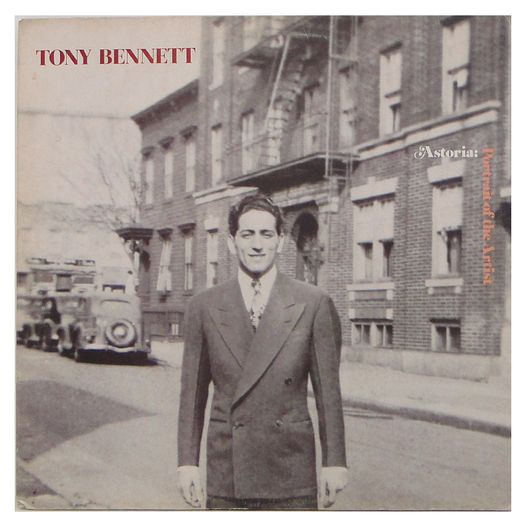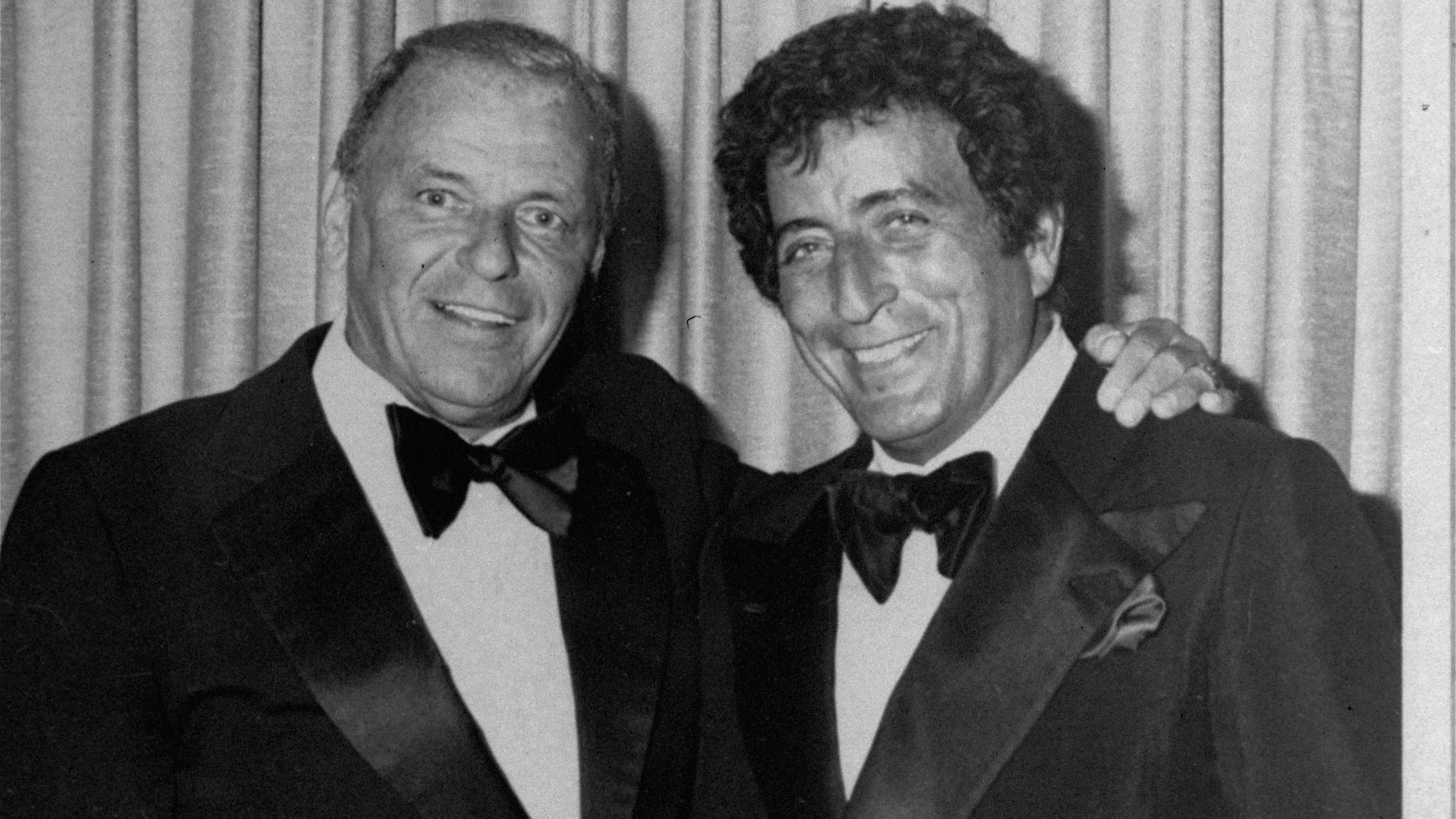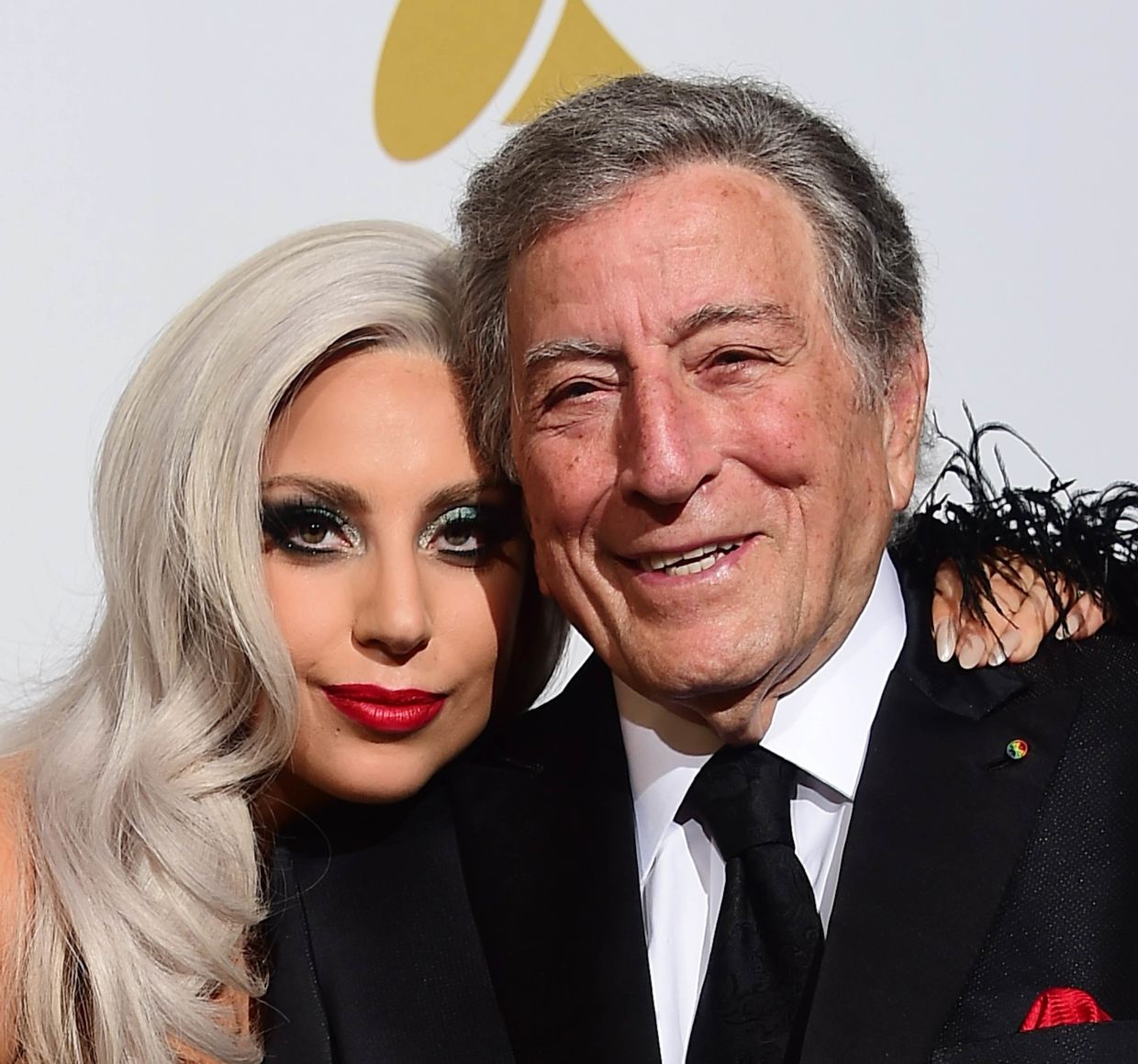
The world has lost one of the greatest voices in American popular music with the passing of Tony Bennett at 96.
His remarkable career spanned over seven decades, and the indelible mark he left behind has inspired, influenced and enthralled fans and musicians alike.
His artistry was forged in a world where songwriters helped shape America’s conscience, and crooners with names like Bing, Frank, Perry, and Nat ruled the charts with their heartfelt vocals on songs that formed the American songbook. Bennett may have sung that he left his heart in San Francisco, but he left it at 23-14 32nd Street in Astoria, Queens, where he was raised.
Bennett was born Anthony Dominick Benedetto on Aug. 3, 1926, at St. John’s Hospital in Long Island City to an Italian immigrant father from Calabria, who worked as a grocer, and his mother Anna Suraci, who was a seamstress. He was the youngest of three children, and the first child in his family to be born in a hospital. After his father died when he was 10, he ultimately had to drop out of high school to help support the family.
According to friend and former City Council Speaker Peter Vallone, “Tony Bennett grew up and was a practicing Roman Catholic when we were young. It’s apparent in his great humility and all the great causes he supported. I cannot picture anyone else as famous as him being as humble as he was,” Vallone added.
“I had always hoped to discover that he was baptized in my parish, Our Lady of Mount Carmel in Astoria, but, alas, apparently not,” explained Msgr. Sean Ogle, vicar for clergy and consecrated life for the diocese. “His first job was as a singing waiter in Riccardo’s Restaurant and Catering on 21st Street in Astoria, a place that only closed during the pandemic in 2021.” Bennett’s family attended St. Margaret Mary Church in Astoria, which has since closed. “I did bring holy Communion to his aunt, Mrs. Benedetto, when I was a newly ordained priest in St. Margaret Mary,” added Msgr. Ogle.
Vallone recalled how the singer got his start by teaming up with piano player Joe Petralia, who happened to be Vallone’s cousin. In fact, Vallone’s father, Judge Charles J. Vallone, who was active in civic organizations and politics, helped Bennett secure his job at Riccardo’s. “Joe and Tony were eight years older than me, and we used to go to Joe’s house, a few blocks from where Tony was born, where my father got him his start as a singer at 14,” recalled Vallone. “My father heard them play and sing and thought he was sensational,” he added. Vallone and Bennett’s friendship would last a lifetime. Even before his singing job at Riccardo’s, Bennett was able to display his musical talent when he performed at the opening of the Triborough Bridge in 1936.

Msgr. Jamie Gigantiello, pastor at Our Lady of Mount Carmel – Annunciation and vicar for development for the Diocese of Brooklyn, recalled that his mother, Angela Valentino Gigantiello, was Bennett’s classmate at Long Island City High School. “She was one year behind him and they were friends,” he recalled. “And Bennett was close friends with actor Ben Gazzara, who was also from Astoria, and his brother, former Senator Anthony Gazzara, as well as actor Tony Lo Bianco.”
Faith was always an important part of Bennett’s life, and he admitted that it was his greatest source of strength, peace, and inspiration. He once explained that his faith helped him cope with the stress and challenges of his career and life.
Bennett was drafted into the U.S. Army and saw combat in World War II while serving in Germany and France. In fact, his unit helped liberate the Dachau Concentration Camp near Landsberg, Germany. He also sang in U.S. Army bands while stationed overseas. Following his discharge in 1946, he returned to Astoria and continued performing in various venues including the Shangri-La on Ditmars Boulevard and The Red Door on Steinway Street.
His big breakthrough came a few years later in 1949. Singer and actress Pearl Bailey was so impressed with Bennett’s blending of jazz and blues that she asked him to open her show in Greenwich Village. When Bob Hope came to see her, he loved Bennett’s singing and took him under his wing. Bennett was using the stage name Joe Bari at the time, and Hope told him that he didn’t like it. Hope asked him what his real name was, and when he told him it was Anthony Benedetto, Hope said that he preferred the more Americanized Tony Bennett.
One year later in 1950 he was signed to a recording contract by Columbia Records and charted his first No. 1 single, “Because of You,” in 1951. The romantic ballad remained at the top of the charts for 10 weeks and established Bennett as a rising star. In keeping with the advice Frank Sinatra offered him, he always would rely on songs by great composers such as Cole Porter, Irving Berlin, George and Ira Gershwin, and Jerome Kern.
That same year Bennett earned his second No. 1 hit with a pop cover of country icon Hank Williams’ “Cold, Cold Heart.” He followed his own instincts and took Williams’ heartbreaking lament, added a lushly orchestrated score courtesy of Percy Faith, and turned the stone-country classic into a mainstream pop hit. He followed this up by introducing the Top-20 romantic standard “Blue Velvet,” which went on to become a No. 1 classic by Bobby Vinton in 1963.
In 1953 Bennett topped the charts again with the operatic Jerry Adler and Richard Ross composition, “Rags to Riches,” and made it to No. 2 with “Stranger in Paradise,” from the Broadway musical “Kismet.” He closed out the decade with a stunning performance of the inspirational Rodgers and Hammerstein standard “Climb Ev’ry Mountain,” from the Broadway musical “The Sound of Music.”

But Bennett would enjoy his greatest success with the hauntingly beautiful “I Left My Heart in San Francisco,” which was written by George Cory and Douglas Cross, two young songwriters from Brooklyn Heights. Interestingly, it was first titled “When I Return to San Francisco,” and then changed to “When I Come Home,” almost a decade before it was recorded by Bennett. Claramae Turner, an opera singer, was the first to record it. It was also pitched to country singer Tennessee Ernie Ford, who passed on it.
Some industry leaders strongly encouraged Bennett not to record the song because they said it would be artistic suicide to record such a sentimental ballad. Once again, Bennett followed his own instincts and proved them wrong, turning his performance into a signature song that endured for over 60 years. Interestingly, however, the song barely broke the Top-20 on the pop chart, reaching only No. 19, but it has sold over 14 million records and won Bennett his first Grammy Award for Best Male Solo Vocal Performance. It also won the Grammy for Record of the Year. The song is the consummate definition of romance and a performance by Bennett that remains untouchable. But despite his self-proclaimed love for the city by the bay, he said that he loved Astoria more than any place he had lived.
The 1970s proved to be a more trying decade for Bennett. He left Columbia Records in 1972 and was signed to the Verve label. When that didn’t work out, he started his own Improv jazz label, releasing some critically acclaimed but poorly performing albums. The label closed in 1977 leaving Bennett nearly bankrupt, with the IRS attempting to seize his property in Los Angeles, where he was living at the time. Additionally, in 1971 his first marriage to artist Patricia Beech, to whom he had been married since 1952, and had two children with, son D’Andrea “Danny” Bennett and daughter Daegal “Dae” Bennett, ended in divorce.
That same year he married actress Sandra Grant, and they had two daughters, Joanna and Antonia, before the marriage ended in 1984. After a near-fatal drug overdose in 1979, he turned to his son, Danny, who eventually signed on as his manager. Bennett kicked his drug habit and got his finances in order, re-signed with Columbia, moved back to New York and resumed doing more than 200 shows a year. He married third wife, Susan Crow, in 2007, and thanks to the career resurgence orchestrated by Danny Bennett, his star shined brighter than ever.
All in all, Bennett charted 52 singles between 1951 and 2011, including 18 in the Top-20, seven in the Top-10 and three No. 1 hits. In addition, his biggest selling albums include “I Left My Heart in San Francisco,” “MTV Unplugged: Tony Bennett,” “Duets: An American Classic,” and “Duets II,” all of which were certified platinum by the RIAA. He has also recorded albums specifically dedicated to his musical heroes, such as his tribute to Frank Sinatra, “Perfectly Frank,” and albums of songs by Billie Holiday, Duke Ellington, and Ella Fitzgerald. And in 2001, he won a Grammy Lifetime Achievement Award.

In 2011 Bennett recorded his last charting single, “Body and Soul,” with the late Amy Winehouse, an artist who claimed Bennett as her own musical hero. And in 2014 Bennett teamed up for the first time with Joanne Angelina Germanotta, better known as Lady Gaga, for the platinum-selling duet album “Cheek to Cheek,” and once again in 2021 they teamed up for the album “Love for Sale,” his last recorded studio album.
Bennett’s strong emphasis on faith led him to record classic Christmas albums including the multi-platinum 1968 “Snowfall: The Tony Bennett Christmas Album” and 2011’s “The Classic Christmas Album,” which featured inspirational standards such as “Silent Night,” “What Child is This” and “O Come All Ye Faithful.”
In a 1965 Life magazine interview, Frank Sinatra said of Bennett: “For my money, Tony Bennett is the best singer in the business. He excites me when I watch him. He moves me. He’s the singer who gets across what the composer has in mind, and probably a little more.”
In 2001, Bennett approached Vallone and then Mayor Rudy Giuliani with a request to open a school for gifted and talented students in music and the arts in Astoria. “Together we came up with a plan to fund such a school,” explained Vallone, who was able to help secure $51 million for the school that Bennett helped design.
“The important thing I want to mention that nobody else knows is that I told him that we were going to name it the Tony Bennett School of the Arts,” explained Vallone. He said, ‘No we’re not, I don’t want it to be named after me. Frank Sinatra was my mentor and I loved the guy and he was a good friend, so I want to name it the Frank Sinatra High School of the Performing Arts.’ ”
Vallone continued, “I said that I liked Frank Sinatra very much but he had nothing to do with the school, and your name will attract everybody. He just said, no, no, no. I said, we’ll call it the Tony Bennett-Frank Sinatra School of the Arts High School. He said no again. I said, OK Tony, we’ll call it the Frank Sinatra-Tony Bennett School, and he said, absolutely not, this is important to me Peter, so I gave in. And the best I could do was name the street after him, Tony Bennett Plaza.”
Bennett was a tireless civil rights activist, and at the request of Harry Belafonte, he marched alongside Dr. Martin Luther King Jr. from Selma to Montgomery, Alabama, in 1965. He also was an acclaimed painter who used his real name, Anthony Benedetto, to sign his canvases.
In 2016 Bennett was diagnosed with Alzheimer’s but continued to perform, and while his memory faded the songs never left him. And so, in the end, the last of the so-called saloon singers recorded over 70 albums, earned 20 Grammy Awards, and received the prestigious Kennedy Center Honors in 2005.
Bennett’s life was a study in humility, courage, and resilience. From his humble “rags to riches” childhood in Astoria to walking a boulevard paved with platinum dreams, Tony Bennett’s musical legacy will live on for generations to come. And while he famously sang about “The Good Life,” his was certainly a life well lived.
